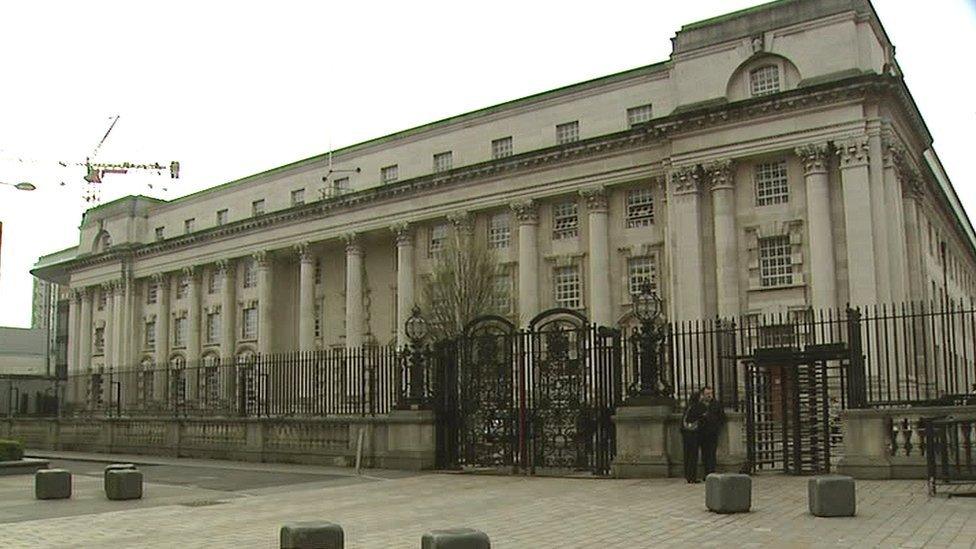Man who changed gender had rights to privacy breached, judge rules
- Published

Lawyers for the man issued proceedings over a reference to the couple's civil partnership appearing on the publicly-accessible marriage certificate
A NI man who wed his long-term partner after officially changing gender had his rights to privacy breached, a High Court judge has ruled.
A judge granted a declaration sought in the legal bid to ensure the man's gender history is kept secret.
Despite being born biologically female, he has lived as a male since adulthood.
His lawyers issued proceedings over a reference to the couple's civil partnership appearing on the publicly-accessible marriage certificate.
Gender recognition
They argued that a Stormont department should modify its records to categorise him as being previously single in a bid to ease the distress at what he has gone through.
The man who took the case has been granted anonymity.
Under the terms of the initial civil partnership with his partner the couple were both classed as women.
He subsequently applied for a gender recognition certificate (GRC) to secure legal status as a man.
He was assessed as suffering from gender disorder or dysphoria and is receiving ongoing medical treatment.
Surgery is not required for the gender change to be officially recognised, but to complete that process the couple had to first annul their civil partnership.
Although they got married after the GRC was obtained, the legal challenge centred on information included on the wedding certificate.
Gender history
The document states that a previous civil partnership was either dissolved or annulled.
The man's legal team claim the certificate reveals one of the couple had a different gender history.
They contended that a solution would be to record his status in the marriage certificate as single.
Judicial review proceedings were brought against the Department of Finance and Personnel which has responsibility for public records.
It was claimed that disclosing the dissolution of the civil partnership amounted to a breach of the man's right to privacy under Article 8 of the European Convention on Human Rights.
A lawyer for the department argued that the legal dispute was over a simple recording of facts.
He stressed there had been no deliberate publication of the man's gender history or information about his health.
But ruling on the case, the judge in Belfast said: "There's no justification for the breach of the applicant's Article 8 rights."
"I conclude that I will grant the declaration in the terms set out.
"I have an open mind about whether any further relief is required."